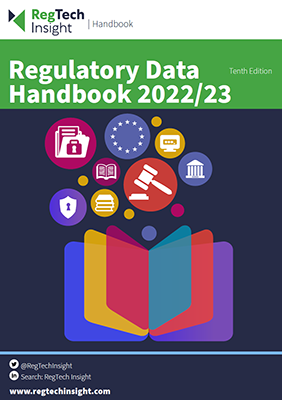RegTech Insight Data Privacy & Digital Identity The latest content from across the platform
Risks and Concerns with Generative AI – What Financial Institutions Need to Consider
By Jennifer Clarke, Head of Content, Global Relay. With use cases for AI becoming more commonplace, many compliance teams have begun to employ AI-driven tools to assist with ordinary tasks including regulatory change management and surveillance. However, as with most new technologies, as innovation around generative AI increases, various new risks and challenges emerge. Potential…
A-Team Group Names Winners of Inaugural RegTech Insight Awards – APAC 2022
Congratulations to the winners of A-Team Group’s inaugural RegTech Insight Awards – APAC 2022. The awards were presented by Andrew Delaney, President and Chief Content Officer at A-Team Group during a drinks reception following A-Team Group’s RegTech Summit APAC in Singapore on 29 November 2022. The RegTech Insight Awards recognise both established solution providers and…
A-Team Group Names Winners of RegTech Insight Awards – USA 2022
Congratulations to the winners of A-Team Group’s RegTech Insight Awards – USA 2022. The awards were presented by Sarah Underwood, Editor, A-Team Group during a lively drinks reception following A-Team Group’s RegTech Summit New York on 16 November 2022. The RegTech Insight Awards recognise both established solution providers and innovative newcomers providing RegTech solutions that…
AFME Makes Recommendations for Open Finance Framework
The Association for Financial Markets in Europe (AFME) has underlined the importance of a level playing field for responsible data sharing and made recommendations for an Open Finance Framework ahead of the publication of the European Commission’s framework for data access in financial services that is due to be published in coming months. EFMA shares…
Regulatory Data Handbook 2022/2023 – Tenth Edition
Welcome to the tenth edition of A-Team Group’s Regulatory Data Handbook, a publication that has tracked new regulations, amendments, implementation and data management requirements as regulatory change has impacted global capital markets participants over the past 10 years. This edition of the handbook includes new regulations and highlights some of the major regulatory interventions challenging…
Recorded Webinar: Perpetual KYC: compliance as the source of better business
Perpetual KYC (pKYC) opens the door for financial institutions and corporations to improve customer onboarding & monitoring processes, reduce operational costs, ensure regulatory compliance, and better understand risk exposures in real time. Unlike traditional or periodic KYC, pKYC continually reviews and updates client data in near real-time providing ongoing data accuracy and accurate risk management….
Recorded Webinar: The future of KYC and AML: How to tackle the challenges and gain the opportunities of perpetual KYC
Perpetual Know Your Customer (or pKYC) could be a game changer for client onboarding, due diligence and financial crime compliance. Moving on from today’s reactive approach that conducts client KYC processes at onboarding and typically at one, three and five year intervals, pKYC takes a proactive approach, creating a digital KYC profile and dynamically refreshing…
Everything You Need to Know About the EU Whistleblowing Directive
It is widely acknowledged that employees who report misconduct within their organisations play a key role in exposing breaches and preventing similar incidents from happening in the future. However, potential whistleblowers are often discouraged from reporting their concerns or suspicions for fear of retaliation. In this context, the European Union deemed it necessary to provide…
EU Asserts ‘Strategic Autonomy’ in Post-Brexit Regulatory Landscape
With Brexit now ‘done’, the EU is taking stock of its regulatory environment as it settles down to life without the UK and its all-important financial capital London. The EU will spend 2022 setting out its regulatory stall as the UK seeks to differentiate itself from its former stablemates. What’s emerging is a multi-pronged regulatory…
Privacy Enhancing Technologies – A Game Changer?
Privacy Enhancing Technologies (PETs) hold promise for financial institutions as a means of collaborating on customer data while ensuring its privacy and security. Use cases include measuring the quality of KYC data in a peer group, sharing suspicious activity reports, and bringing together transaction data for Anti-Money Laundering (AML) purposes. As well as supporting these…









